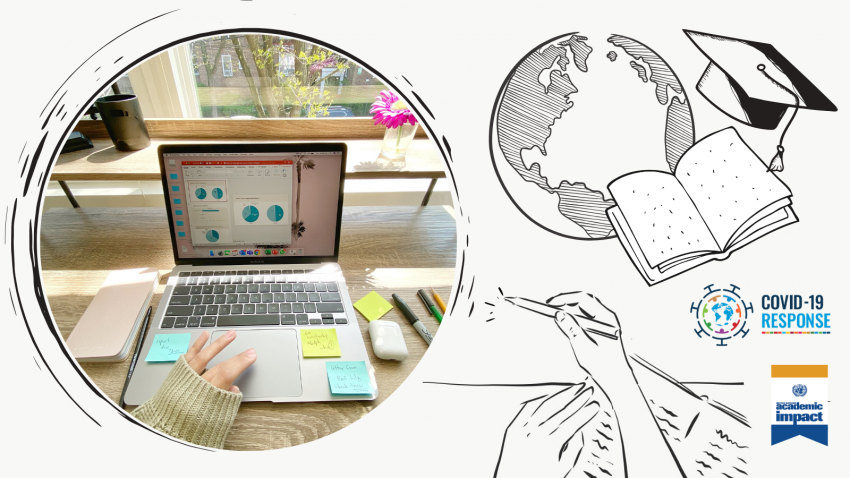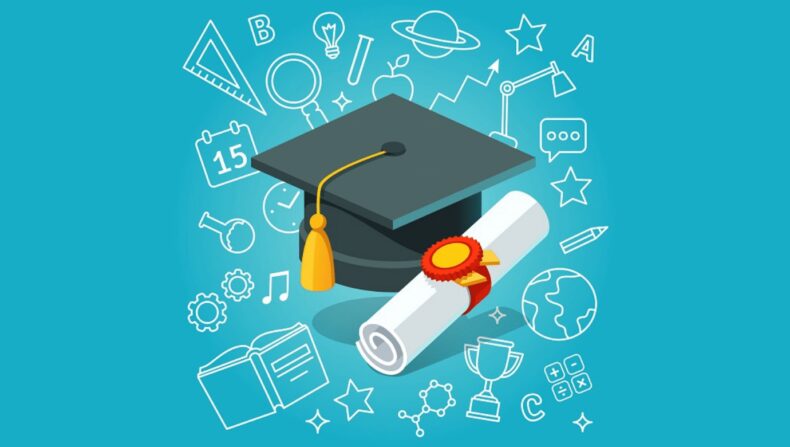Education is the core of any human being’s life. It decides an individual’s conduct and guides him or her in each and every aspect of life, be it intelligent decision-making or his or her pursuit of living standards in society.
Introduction:
Education is a platform on which young generations are trained and made future-ready. Education dispenses knowledge and skills that make a person employable. The education system followed in India is very popular and diversified among other countries’ education systems due to its change in evolution from the ancient to the modern education system.

It develops social skills, enabling us to be open and connect to the outer world, and it enforces a sense of competition in students, which makes them utilize the optimum level of their potential in various fields on a larger scale. In the evolution of society, administrative structures, and global economies, education has taken several folds in its modernization, and the way of teaching students is considered beneficial for that particular time. In this project, we’ll be studying the development of education during various eras and time periods of history in the context of Indian education and the education sector of countries worldwide.
During the research, we found there are several factors that affect the approach of society towards education and the quality of education, be it an era in which education was seen as part of religious norms that imparted education as a part of life, also defining it as one of the prescribed divisions or stages of an individual’s life. In the modern world, the exchange of cultures through voyages and exploration initiatives from the western countries resulting in the colonization of other countries widened the idea of education and the subjects to be taught in institutions.
New understandings about the contribution that education makes are that it gives economic and social outcomes to diverse societies of people, who are driving the present policy impetus for schooling improvement. However, reports of failed educational reform efforts continue to come in from around the world. What seems to be common-sense policies result in unproductive change or unintended consequences. Even when based on evidence about what works, policies often fail because insufficient attention is paid to the “how” of implementation.

Education in COVID times
As the world turns out to be progressively interconnected, so do the dangers we face. The COVID-19 pandemic has not halted at public boundaries. It has impacted individuals paying little heed to ethnicity, level of training, pay, or orientation. In any case, the equivalent has been invalid for its ramifications, which have hit the most powerless the hardest.
Schooling has not been an exemption from the impact of this global pandemic. Students belonging to privileged classes, upheld by their families, and energetic and ready to learn, could track down their far beyond-shut-school ways to elective learning potential.
Those from distraught foundations frequently stayed home when their schools shut down. This emergency has uncovered numerous deficiencies and imbalances in our schooling systems, from access to the broadband and PCs required for online education and the strong conditions expected to zero in on learning to the misalignment among assets and necessities.
In the interim, a few nations have implemented prompt monetary measures to help students and school systems adapt to the interruptions and financial effects of school and college terminations. Models include:
• A relief package for higher education, sent in April 2020 by the Australian government, financed Australians who were dislodged because of a coronavirus emergency and were expecting to work on their abilities or retrain. This bundle decreased the expense of taking short web-based courses, gave exceptions from credit charges to homegrown students for a half year beginning in May, and ensured subsidizing for homegrown children, regardless of whether enrolments were dropped.
• The send-off by the Canadian Emergency Student Benefit reported in April 2020 looks to offer monetary help to post-optional students and ongoing secondary school graduates who can’t look for a decent job because of the pandemic over the mid-year months. The Canada Student Service Grant will likewise offer monetary help to students who provide public assistance and serve their networks during the pandemic emergency. The public authority has likewise declared plans to twofold understudy concedes and widen the qualification for monetary help (Trudeau, 2020[8]), as well as extra help as grant subsidizing expansions for students and postdoctoral analysts impacted by the COVID-19 pandemic
• Support measures reported for distance learning by the Italian government in March 2020 include outfitting schools with computerized stages and instruments for distance learning, loaning advanced gadgets to less wealthy students, and training the school staff in procedures and methods for e-learning. In May 2020, Italy reported new measures that try to give additional financing to take care of expenses emerging from reactions to the pandemic emergency at the school and college level.

In November, Ireland’s Department of Education will host Education Exhibitions in India.
On November 19, the fair will be hosted in Delhi. Pune will host it on November 20, Mumbai on November 23, Chennai on November 26, and Bangalore on November 27.
According to a formal announcement, the fairs would give Indian students interested in studying abroad in 2024–2024 a general overview of the educational options available in Ireland.
Ireland, one of the top destinations for higher education worldwide, attracted more than 6000 Indian students to study there last year at the undergraduate and graduate levels.
To invite students from all around India and to promote the many opportunities Ireland has to offer, 16 of Ireland’s best higher education institutions (HEIs) will be visiting India this month, it was noted.
An Infructuous Pleading For A Uniform Education Policy For Children Of Migrant Workers During A Pandemic:
On Thursday, the Supreme Court dismissed a 2020 petition that sought a universal education policy for children of migrant workers in order to prevent discrimination and the digital gap during the coronavirus pandemic as being “infructuous.” Justices S K Kaul and Abhay S Oka’s panel stated that the COVID-19 period is now over.
“The issue that was intended to be addressed during COVID-19 was the education of immigrant children, but time has rendered this matter infructuous. “The petitioner’s attorney requests that the plea be withdrawn,” said the bench.

Read more: The evolution of time demands better technology for higher education
Also Read: New Education Policy(NEP) Is It Effective?












